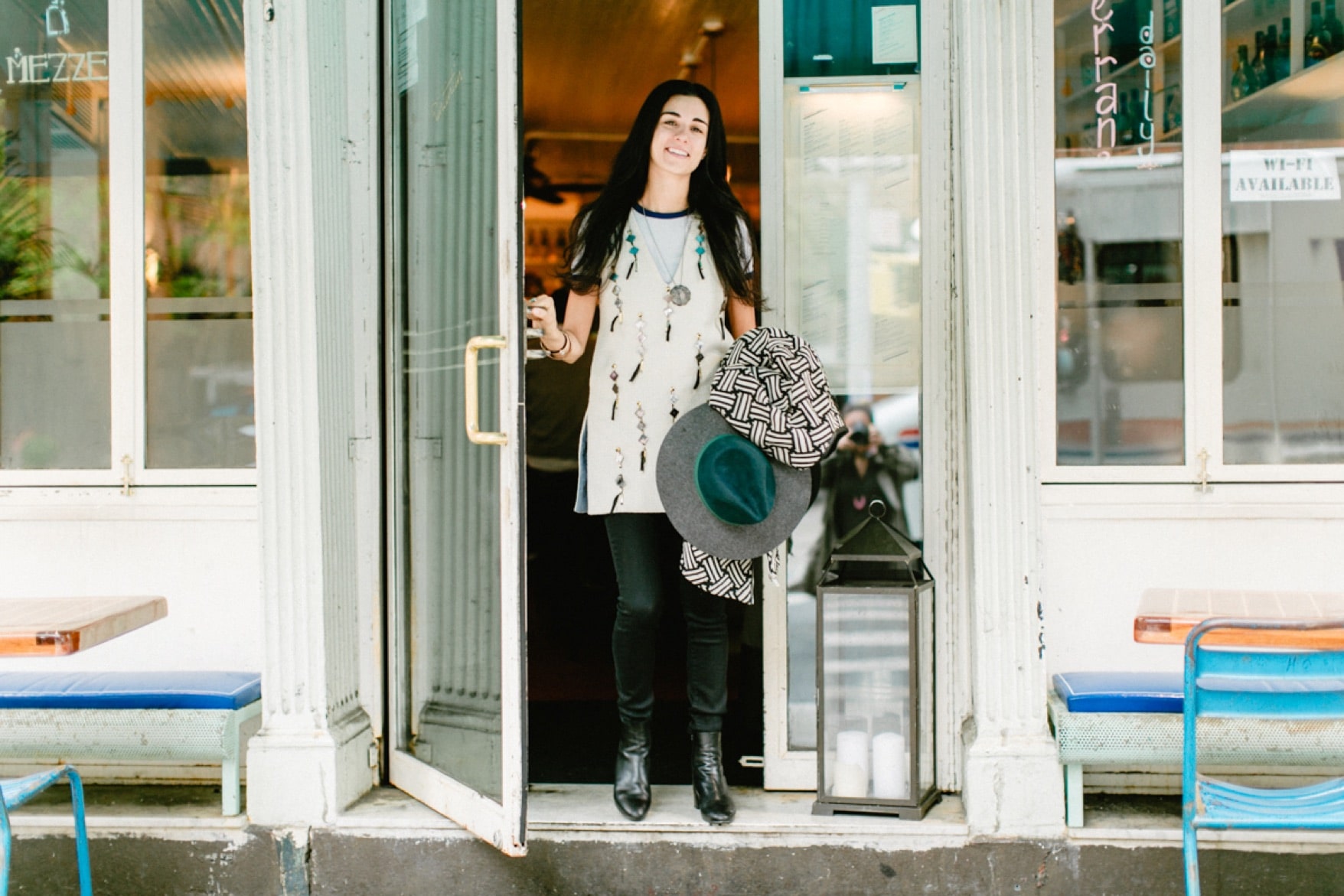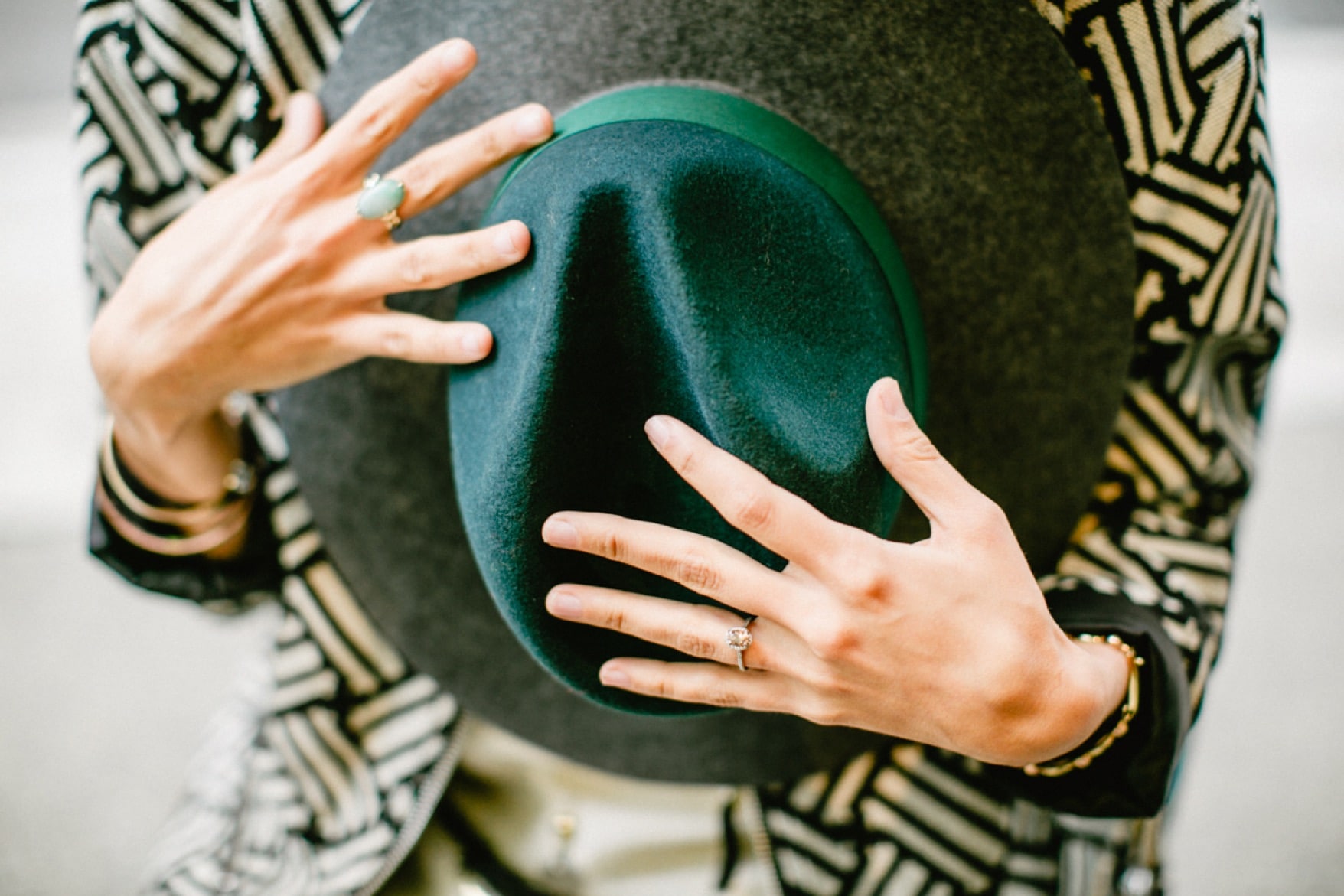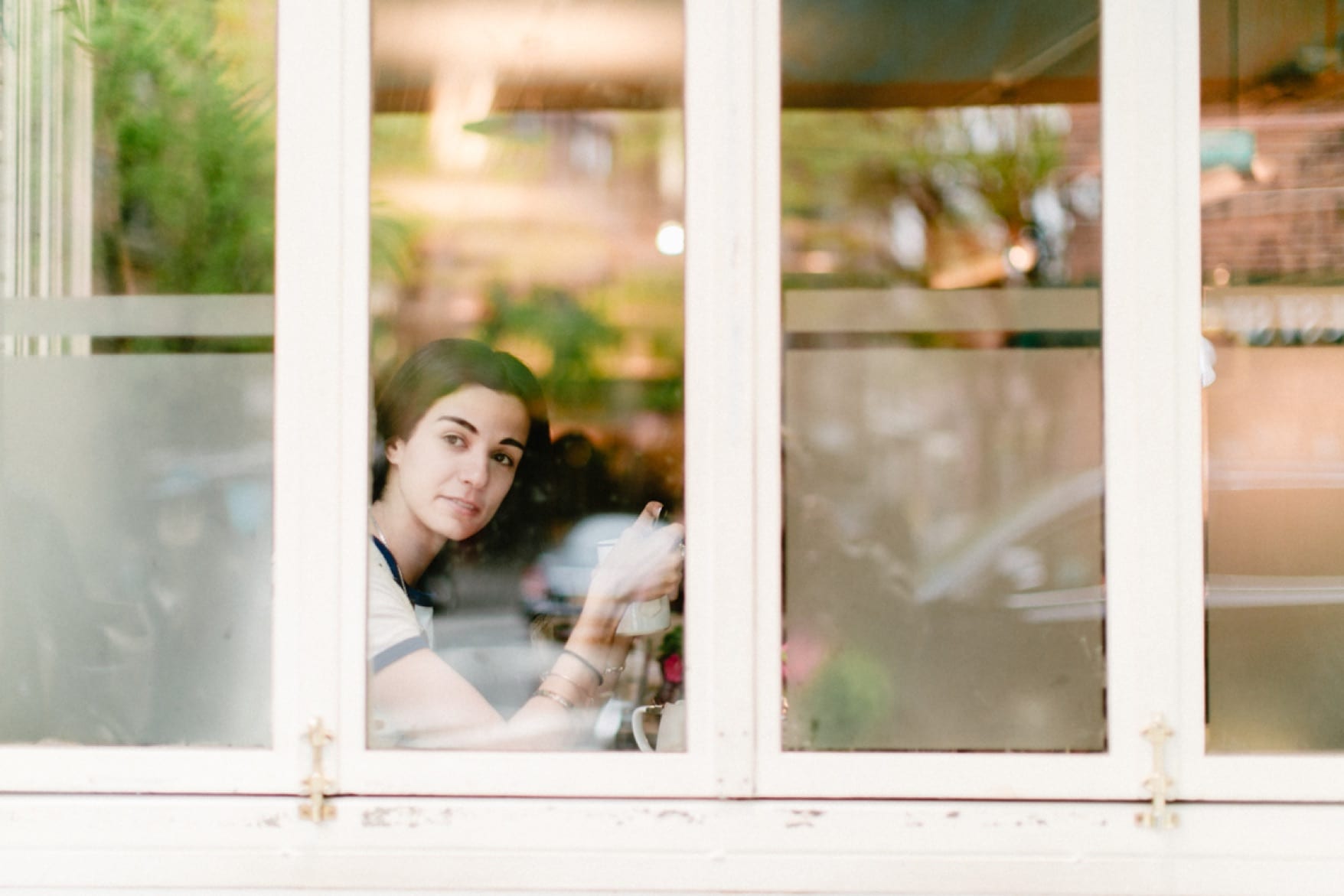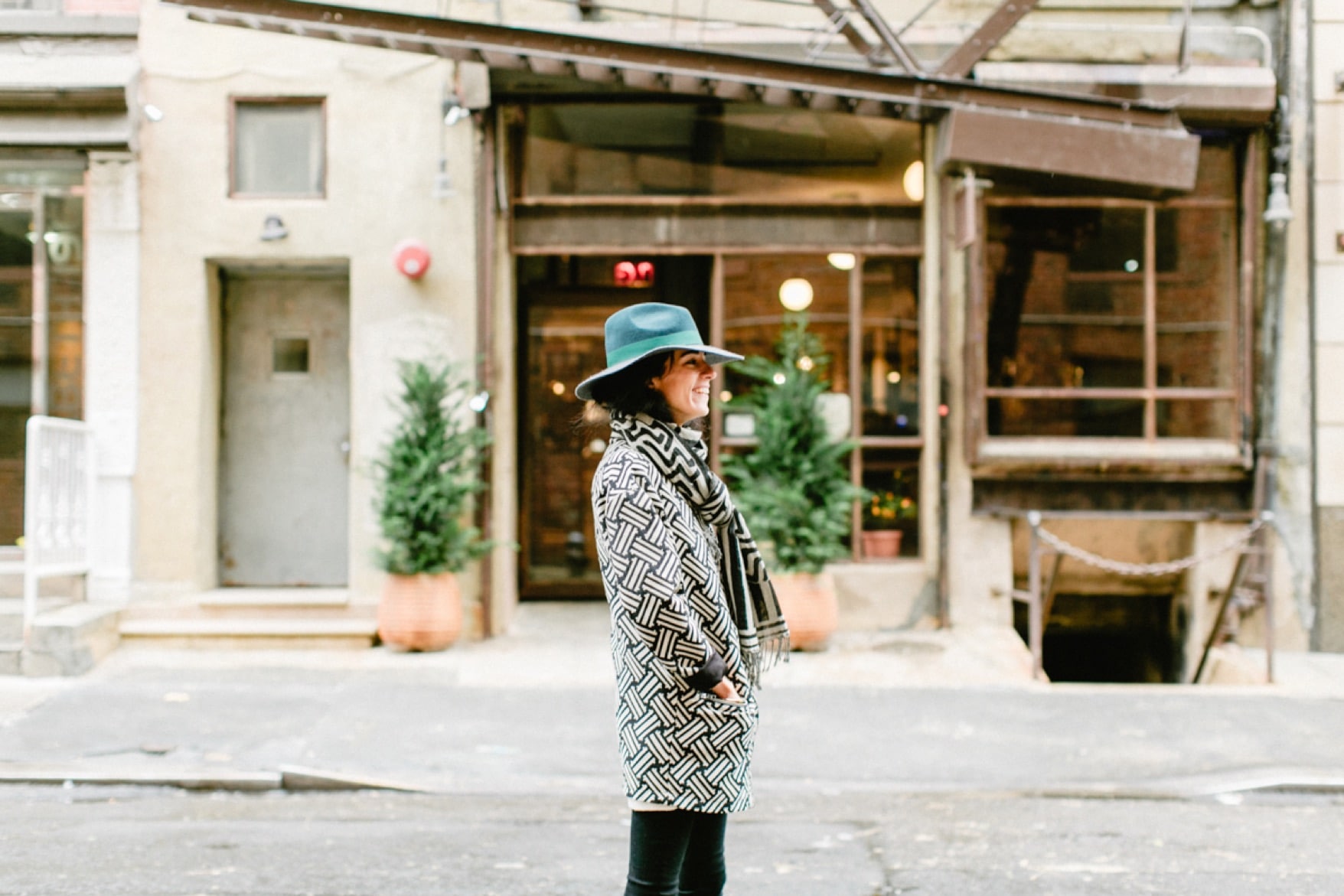Abigail, a born-and-raised New Yorker and startup veteran, strolled around SoHo with us on a drizzly day and made us laugh about her journey from an awkward purple crushed velvet bat mitzvah suit to being completely comfortable in her own skin.
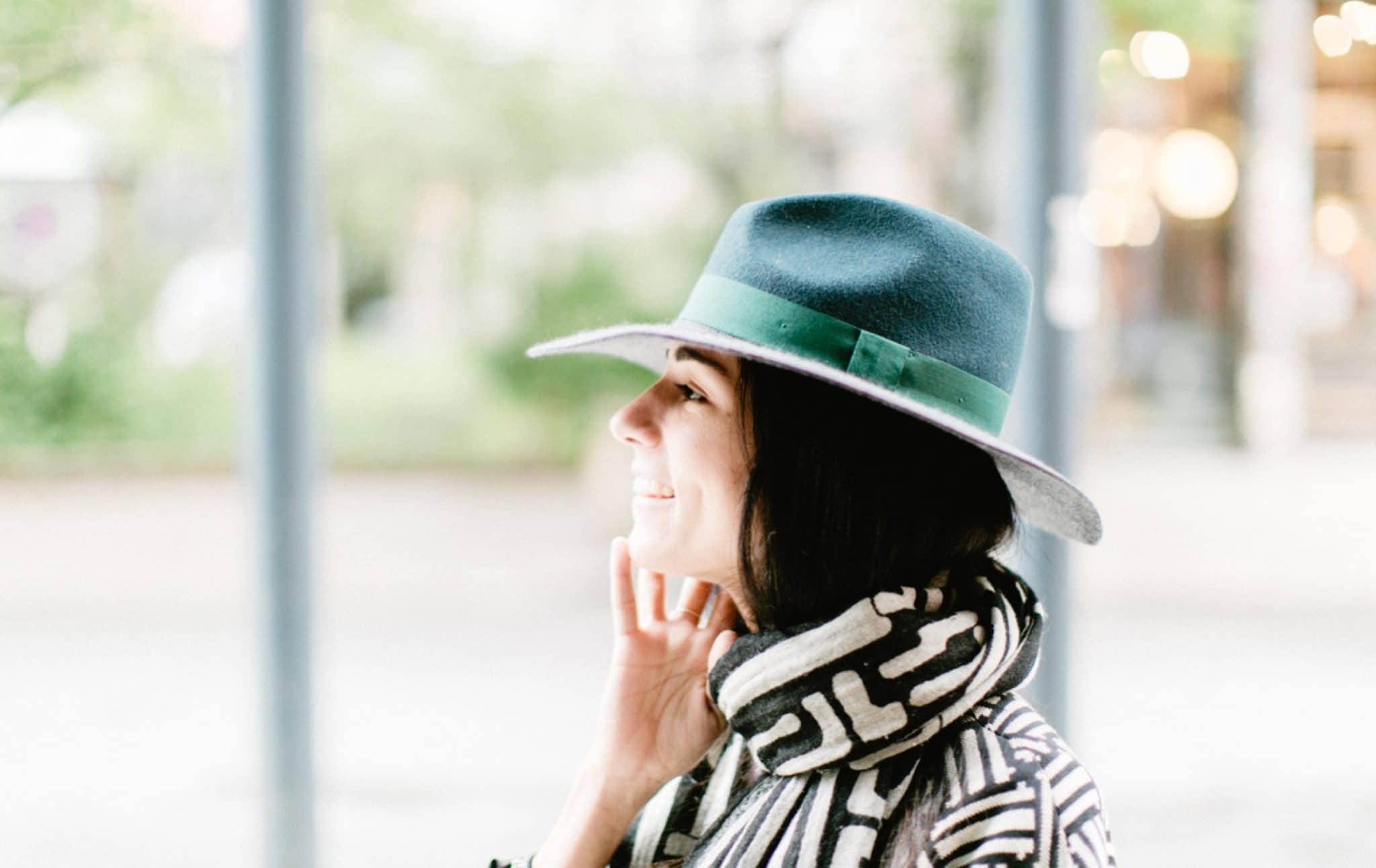
Tell us about your background.
I grew up on the Upper West Side of Manhattan and was raised Modern Orthodox. It was a crucial part of my upbringing. It meant pretty traditional observance, but a wholehearted and welcoming embrace of the secular world, too. We kept religious laws, a kosher home, and everything revolved around the holidays, but I was as immersed in secular culture as someone who had absolutely nothing to do with religion, which is a fairly new idea that came to be in my parents’ generation. It was something they are very proud of. Before, you were part of a religious circle to the exclusion of the secular world or vice versa.
Where does your family come from?
My dad’s mother and her two sisters were on the last boat out of Vienna before the Nazis got there. My grandfather was here before the war and was a rabbi. He started Yeshiva University’s program for non-observant Jews. It was the first of its kind in that people who were unaffiliated or wanted to know something about Judaism could go there and learn and be welcomed. It was pretty radical. My father is the son of a rabbi and he and his three sisters grew up in Queens, New York. He’s a lawyer. Duh. Both of my mother’s parents survived the Holocaust. My mother has a younger brother and they grew up in New Jersey. My mother’s father was an officiator of some kind at the Conservative shul in Bayonne, New Jersey. Very much like, “We’re American now and this is a form of free religion.”
What were the traditions of your childhood?
My brother and I both went to Jewish day school for elementary school and high school, which meant a dual curriculum. We were in high school from 7 am to 7pm. We did half the day in English and half the day in Hebrew. It was a pretty rigorous education. We were fluent-ish in Hebrew. Pretty fluent in anything Biblical, Talmudic. Our secular education was also pretty strong. Everything revolved around Judaism. The calendar of events – the Jewish holidays, Shabbat – was the cadence of our lives. Friday night dinner, synagogue Saturday morning, lunch right after that, seeing the same people. I didn’t appreciate it then, because I didn’t know any different.
It’s hard for me to separate our upbringing, period, from our Jewish upbringing.
What is your earliest memory?
When you were in nursery school and it was your birthday, your parents would come and everybody would sing and you would get dressed up and you would stand on a chair. The tables were really low and the chairs were even lower, so this wasn’t a height of any kind, but I stood on the chair and was so nervous, I fell face first into a strawberry birthday cake, which I didn’t like anyway. That’s my earliest memory.
Is that also your most embarrassing moment?
No, not even close.
What is your full name and is there a story behind it?
My legal name is Abigail Ruth Besdin. Abigail is my legal name, but, growing up, everybody called me Avigayil. In Hebrew, Avigayil means “the joy of my father,” and I’ve always found that very heartening. But, for some reason, Avigayil is something that nobody else in the world can pronounce, so I really felt like it was an identity crisis. Luckily, I have this backup name, which is my real name, which is Abigail, but in college and in my first jobs, I’d go by Avigayil and people would really struggle with that. So, I have a dual identity, you could say. Ruth was my maternal great grandmother. The biblical character Ruth was known for generosity. Besdin in modern Hebrew means “court,” like the High Court, so we always thought we were definitely the judges. Everyone in my family is a lawyer. Then, my father discovered there was a dirt village in Poland called Besdan, which is actually where we’re from. It was Besdanski until somebody at Ellis Island did someone a favor and cut off the end.
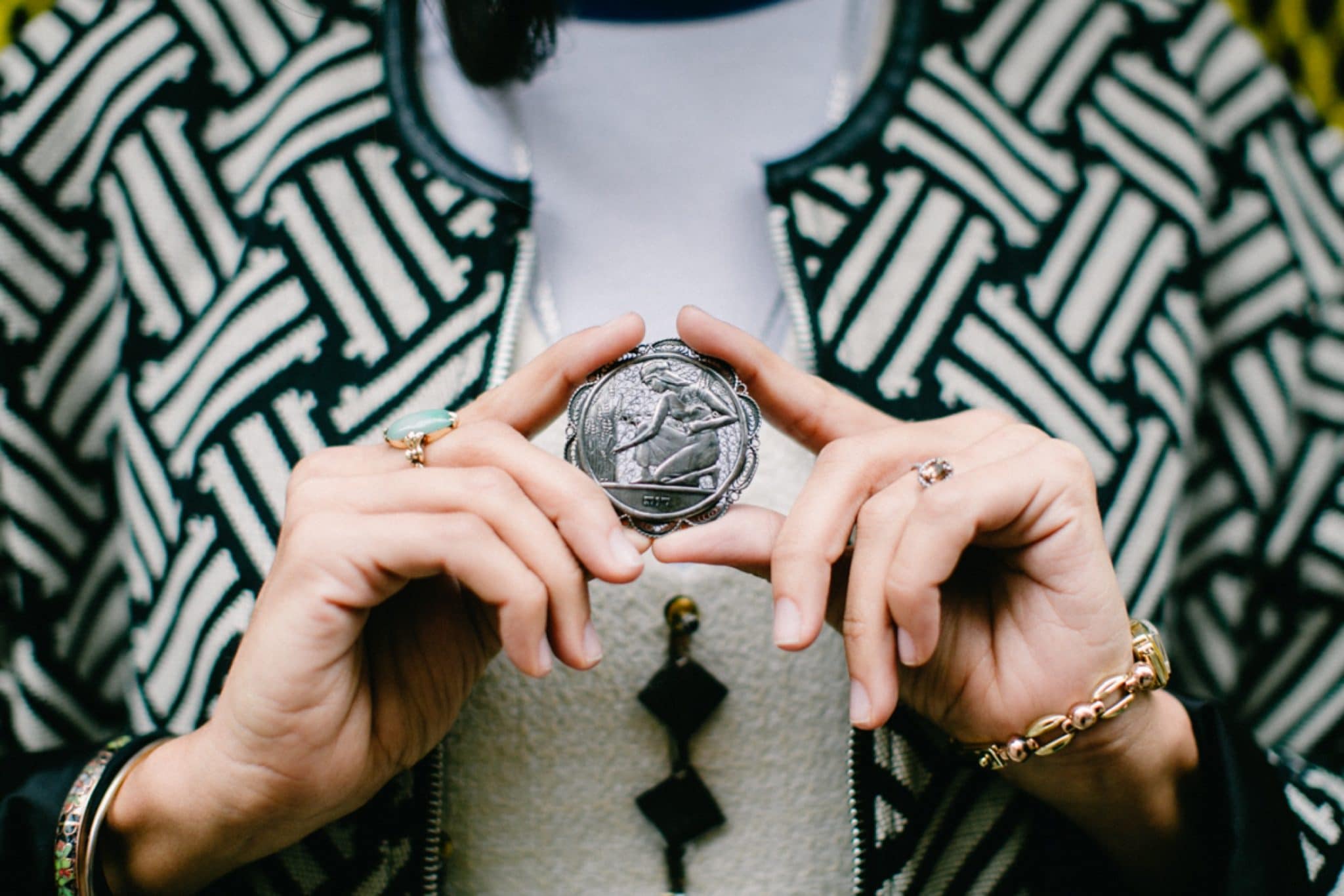
What did you want to be when you were 5?
I never thought, “I want to be a princess.” I was a literal, realistic person from the day I fell into that cake. When I was twelve or thirteen, I found a book that was my father’s from law school. It was The Elements of Moral Philosophy by James Rachels. It was full of moral questions and ethics, and I fell in love with that. I went to NYU because I wanted to be in that Philosophy program and I graduated and thought I would get a PhD and become a professor and had no doubt about that. But, what I really wanted to do was think and be strategic and very logical but move really quickly, and being a professor of Philosophy had nothing to do with that. Even wanting to do good in the world and impact education, which I feel passionately about, and being a professor…the tie between those two began to unravel and they actually didn’t feel related at all.
What was the theme of your bat mitzvah?
My mom was just reminding me about finding something to wear to my bat mitzvah. We went to every establishment that sold kids’ clothing in the Tri State area. Southern New Jersey, Upper East Side…I couldn’t find anything because I wasn’t comfortable in my own skin. I wore an eggplant purple velvet business suit with a crushed velvet lilac shell. And loafers. It was like power broker 12-year-old. It was really bizarre. It was very obvious that nothing else worked, but we’ll just deal with this.
How did your Jewish identity and practice evolve after you left home?
Everything had to be a choice. Everything was built in before, so I could resent it or appreciate it or like it one day, dislike it the other…but I could also just ignore it and go with the motions. The more autonomy you get, the more you have to opt in or opt out of certain things. You have to say, “Do I want to do that if I don’t believe in it? Is there value in doing something I don’t believe in for the sake of other people? Is there value for myself?” I’m undeclared. Independent. Not what I was growing up. The more space I got, the more I could be objective. I thought, “Well, that, maybe for a different reason, more of that, and that has a lot of value, and I miss that and I didn’t think I would miss that.”
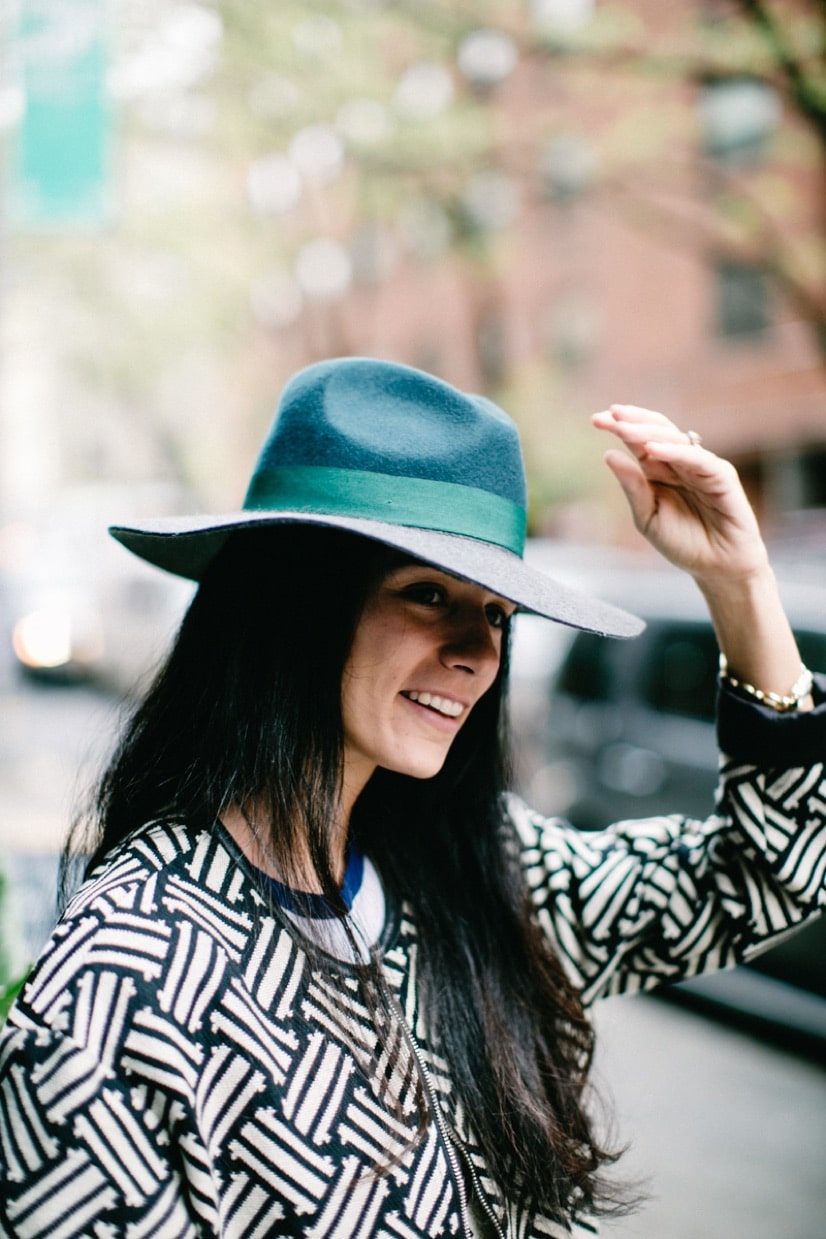
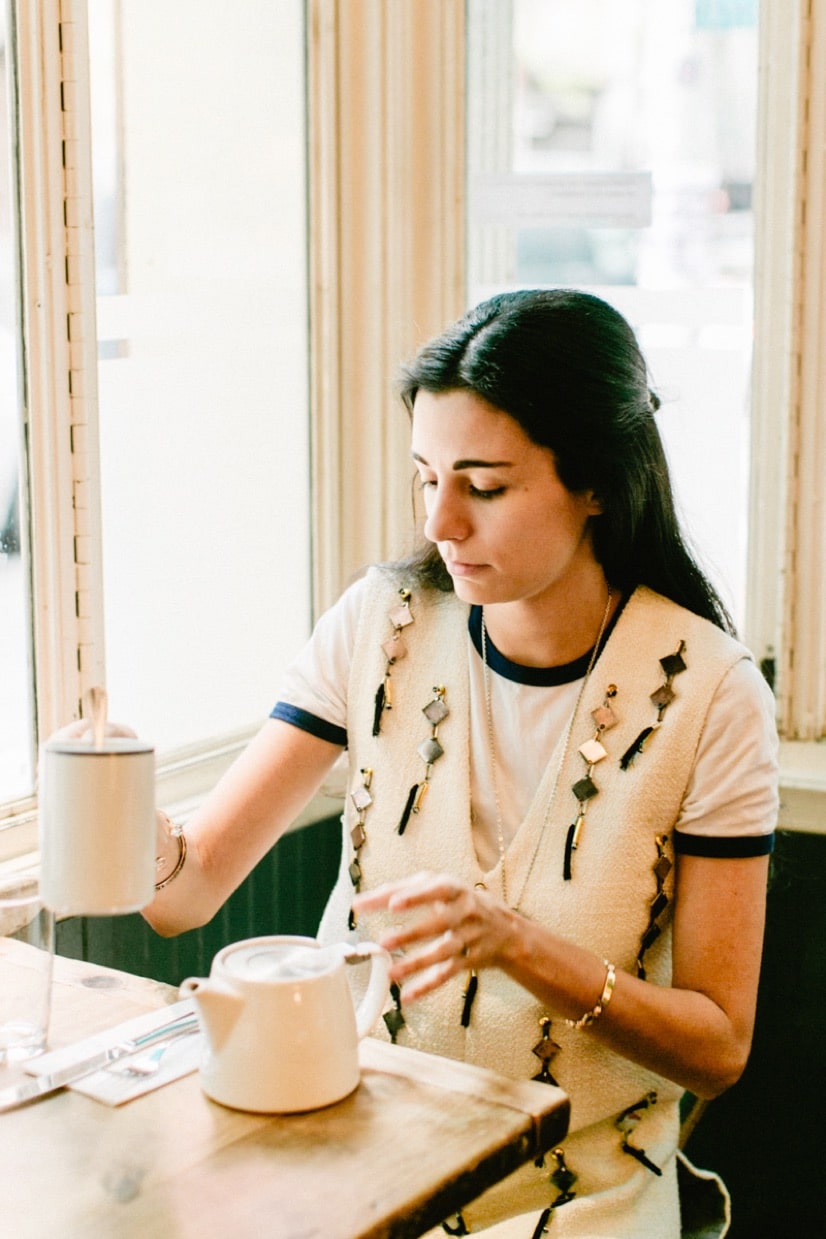
What has been your favorite age so far and why?
30, baby! I’m very comfortable in my own skin. I have a kid, which is really hard, but really awesome. Julian and I have been married for 7 years. We’re in a great groove. There’s the phase that you go through in a relationship when you’re both still growing up and that intensifies everything for better and for worse. Now, we’re both comfortable in our skin, we’ve both made enough decisions over the last couple of years that the life that we live today is our choice or our fault, depending on how you want to see it. We did this, this is our path, we made this, and it’s great. We’re a little family unit, we have no idea what comes next, but it’s O.K.
What have been the keys to the success of your relationship?
The more you accept your differences and realize that it’s actually why you’re attracted to that person and that it provides a great amount of balance, the more the things that caused tension before just make everything 100 times better. For example, the hours that Julian’s the best, I’m the worst, and the hours he’s the worst, I’m the best. He’s like, “Why do you always pass out when we’re watching TV?” I’m like, “Why don’t you want to wake up earlier and get coffee?” And that’s a perfect complement. I have time in the morning, you have time at night. It helped when our son came along.
Our differences became areas for appreciation and filling in each other’s blanks.
Do you have a personal mantra or something you repeat to yourself?
Murder your darlings. Being able to invest a lot into things and asking very objectively, “Did it or work or not?” and then move on, which is my preferred working style. In life, shedding whatever didn’t work or you thought that thing was going to happen and then you can move on if your current perspective doesn’t support it.
What do you value in your friends?
Loyalty, empathy, fun. I’m not an extroverted person, but I’m a very fun person. Things should be funny. People who are overly serious just bum me out. I also like very thoughtful people. I’m not looking for a party friend, because I don’t leave the house on weeknights anymore. Listening, thoughtful, loyal.
What’s your biggest insecurity or fear?
I would pay someone $150/hr to have me answer this question on a couch. This is the first time in my life where I’m making decisions that have lifelong impact. That’s scary. Where to live, where to send Zeke to school, what to tell him about the world, what happens next in my career, in Julian’s career, how near or far are we living to our families and what does that look like fifteen years from now? Everything. I feel consumed by decisions that are exciting but that are very long-term impact, so that’s terrifying.
What’s your greatest extravagance?
I do buy Yogi tea by the palette from Amazon every month. Is that an extravagance or a confession?
How does being Jewish play into your life now, if at all?
It still shows up. My parents and Julian’s parents still operate in the same program that they did when I grew up, so I can enter and exit it, which, selfishly, is nice. I don’t have to do all the things to maintain that awareness and that structure. Now that Zeke exists, it’s like, “What do I do about that?” It would be heartbreaking to me if he didn’t feel as connected as I do, but if I’m not as connected as I was, how do I accomplish that?
Have you started to figure that out?
I want to send him to a Jewish school. We can do more at home, and we can make sure that he has a very close and meaningful relationship with his grandparents. If I were to put on my 3-pronged strategy, that would be it. We also named him Zeke, so, he’s going to have to field a lot of questions about that.
I’ve always been obsessed with the idea of justice and right and wrong. Religion is a great avenue to capture that. How to behave in the right way, and things that are wrong and why not to do them. It’s a really great ethical system. But, I started to bump into Jewish laws that had nothing to do with morality to me. They were either irrelevant or I disagreed with them. It became harder for me to say the guiding principle of this system is to be good and do right in the world. One example that sticks out for me is organ donation. It broke my heart and crushed me that the system I was in didn’t think that was the right thing to do. How do I have these two sets of principles, one where things I really believe in and want to do are wrong in this other system that I subscribe to? That tore me apart. That contributed a lot to the discomfort in my skin. Growing up and having my own moral compass and appreciating religion for the community and the culture and the calendar and the cadence.
I had to separate out the “this is good, this is bad,” because I have my own version of that and it didn’t fit.
Favorite writers and books?
I’m a huge Joan Didion fan. Anything she writes, I eat it up. I’ve only read non-fiction for the last ten years, which I should change. I still love philosophy. Thomas Nagel, John Rawls, these are people whose works I studied and will still go back to. The Internet’s kind of fried my brain. I read a lot, but I don’t know who wrote it and I don’t remember what it was about.
What do you love most about New York?
Oh My God, I don’t even know where to start. I don’t know that I would know how to function outside of New York. I don’t know how to separate what’s me and what’s New York.
What’s a cause you really care about?
Education. Justice. To my core, I really care about fairness, specifically in the justice system. I have an unhealthy obsession with things like The Innocence Project or wrongful accusations, how the process serves people of different classes differently. I consume a lot of information about that and I feel many feelings about that, but I don’t know what to do about it yet.
Best Jewish food?
Can we take credit for the pizza bagel? Pizza bagel.
Worst Jewish food?
Anything with fish. Herring.
Photos by Amber Gress.
Thank you for visiting Arq!
Arq is no longer publishing new content. We hope you'll enjoy our archived posts.
